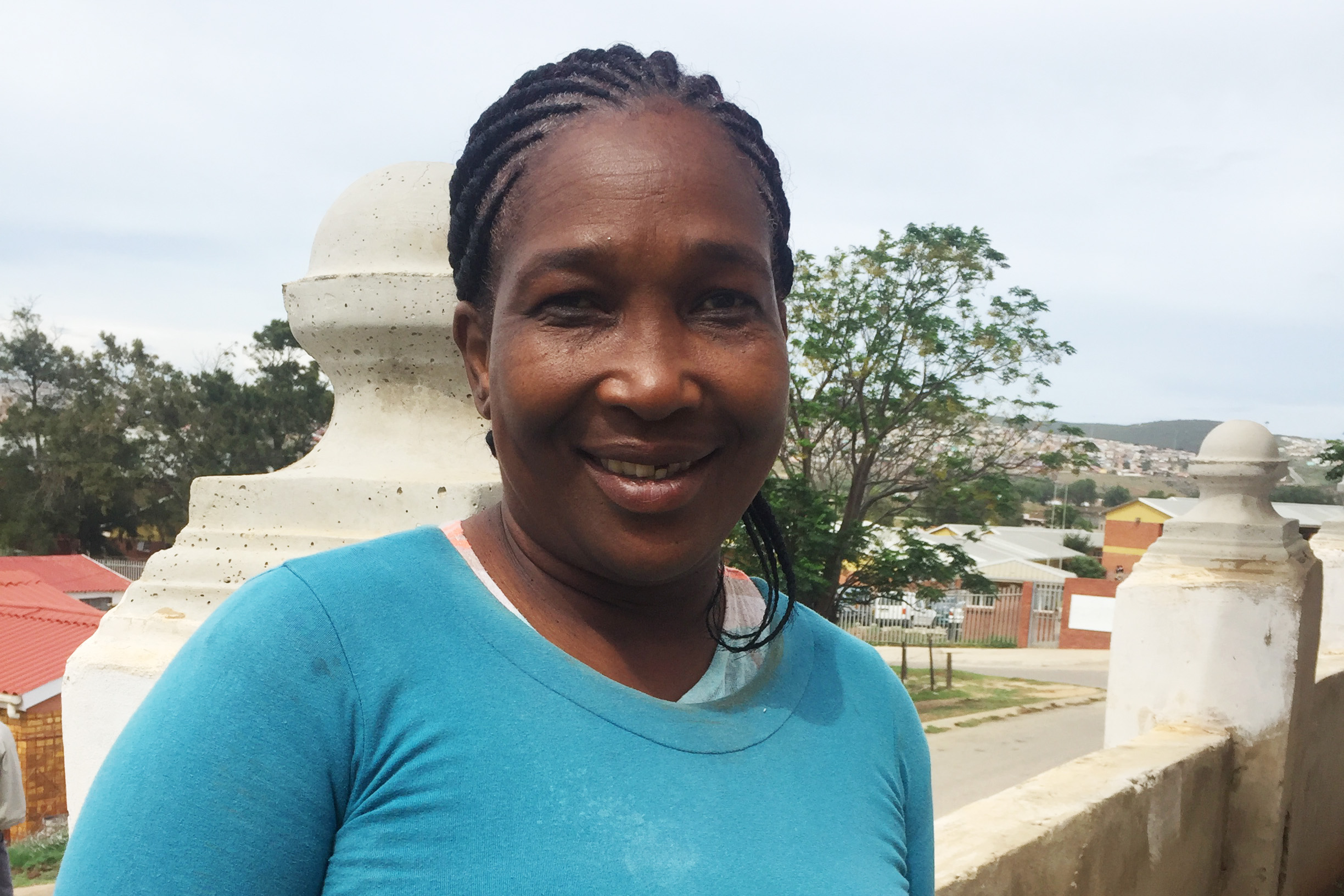Woman activist tackles rural problems head-on
Phumla Runeli champions the right of residents in impoverished rural communities in the Eastern Cape to live in a safe and healthy environment.
Author:
19 March 2020

It is the crack of dawn in KwaNobuhle, on the outskirts of Uitenhage in the Eastern Cape. A tall woman stands near a ravine, extending a helping hand to young schoolgirls who are climbing up. Nearby, several dozen people are protesting, demanding that the government replaces the bridge over the ravine that washed away 10 years earlier.
A few days later, the tall woman is at it again, this time 100km away in Jeffreys Bay, leading a protest of semi-urban livestock owners down the main street. They want land for commonage and grazing rights.
The woman is Phumla Runeli, 51, a grass-roots community organiser and chairperson of the women’s forum of the Makukhanye Rural Movement.
Related article:
Runeli busies herself from morning to night mobilising and organising different communities and groups of workers in a 250km radius in the Eastern Cape. Be it wage theft by employers, rampant crime, a lack of water and electricity or the impounding of cattle, she is always ready for the fight.
She says she was a shy child growing up in KwaNobuhle under the brutal apartheid regime, but she was always involved in community issues. Her strength as a woman leader was forged through the extreme hardship she experienced during apartheid, and also when her partner died when she was just 21 and pregnant with their second child. Around the same time, her father died while her mother was unemployed, which left Runeli to fend for her family at a young age.
For many years, she swept the streets twice a week as part of an expanded public works programme. “I was a woman sweeping the streets. It was not easy but I had to survive. I was struggling over a long period of time and just focused on getting my children a better life,” says Runeli, who has now organised the other workers to claim permanent employment after 12 years in the same “casual” job.
A new broom
She was appalled at the time of her partner’s death that the company he had worked for gave her only a tiny death benefit. “No one could assist me. So I joined Sanco [South African National Civic Organisation] and became a strong activist and later moved to the Makukhanye Rural Movement,” says Runeli.
Makukhanye is a broad social movement in the Eastern Cape covering rural and urban communities in Nelson Mandela Bay, Jeffrey’s Bay and the Addo farm area, as well as Paterson, a small town about 80km northwest of Alexandria. It mobilises and advocates for the rights of small-scale semi-urban and rural farmers and for communities to live in a healthy and safe environment. It has members in most towns, townships and shack settlements in the region.
One of Runeli’s priorities has been campaigning against a dangerous irrigation canal that runs through the Addo area, servicing mostly white commercial farmers. Built in the early 20th century, the open canal is not fenced and claims the lives of several people each year. Runeli has worked tirelessly with the Makukhanye Rural Movement to lobby all tiers of government to enclose the canal, a campaign that is yet to bear fruit.
One of Runeli’s successes has been her galvanisation of KwaNobuhle residents to have a new bridge built over a dangerous ravine where criminals hide to rob and rape schoolgirls on their way to class. Runeli, who is a member of the Solomon Mahlangu High School’s governing body, spent years campaigning with the support of pupils, teachers and the principal for the bridge to be rebuilt, a campaign that paid off last year when construction began.
“These were our ideas and demands that were carried through,” says Runeli, who worked with the local councillor to get the municipality to fund the bridge.
Related article:
She is now focused on supporting the residents of Tjoksville, a shack settlement near Graaff-Reinet. “There are five toilets there for the whole community. No street lights. Like many rural areas, the mobile clinic sometimes does not arrive and sometimes it comes with no doctor. We are trying as the Makukhanye Women’s Forum to devise a campaign to secure housing and water for this community.”
Like many activists from social movements and grass-roots struggles, Runeli is entirely unpaid and picks up piece work here and there in order to support her sons, one of whom is completing a PhD. She married an abusive man some time after her first partner’s death and, though divorced now, the stress of that marriage has left her with heart disease. It has also made her passionate about feminist activism.
“I urge other women to take responsibility to look after themselves, their children and the community. This is the only way. Don’t stay in those marriages that will create stress and depression,” says Runeli.
Women’s rights campaigner
Activism today is carried out under the cloud of ever-present gender-based violence and femicide, says Runeli. “We have so many problems in our communities now with rape, crime and drugs.” At the time of the interview, she had recently discovered a tiny four-year-old girl at the bottom of the ravine early one morning. The girl had been raped and left for dead, but she is now recovering in hospital. Runeli could not eat or sleep after finding the child, and says the regular reports of brutalised and violated children and schoolgirls being found is wearing many strong women activists down.
One of the problems plaguing impoverished and working-class communities in her region of the Eastern Cape is the onslaught of crime and the failure of the criminal justice system to protect residents, who then want to take matters into their own hands. “Terrible crimes are committed here, but the people who are arrested are either released immediately or, when they come out on parole, they commit more crime and are locked up again within three weeks. They keep on raping, killing and committing gender-based violence. This is a big challenge for us. Where are our rights as women?”
Related article:
Runeli is not a member of a political party and credits the Khanyisa Education and Development Trust, which supports the Makukhanye Rural Movement, for its support and her development as an activist.
She offers some advice for women who are emerging activists: “Be peaceful, humble, transparent and don’t be a liar. Respect the community. If you are an activist you might get very stressed with people coming to you for help, day and night, but never drop out. Be bold about yourself and try to do the right things for the community. Build a bond with your community and don’t expect money in return for your work. We must unite. Unity is power.”
On the day of the interview, Runeli is being visited by street sweepers from the expanded public works programme who are seeking advice about some pay deductions to which they never agreed. When asked how they feel about Runeli, one person exclaims: “Yoh! She is a hero. Always, she is here with us in the fight to get a better life.”



